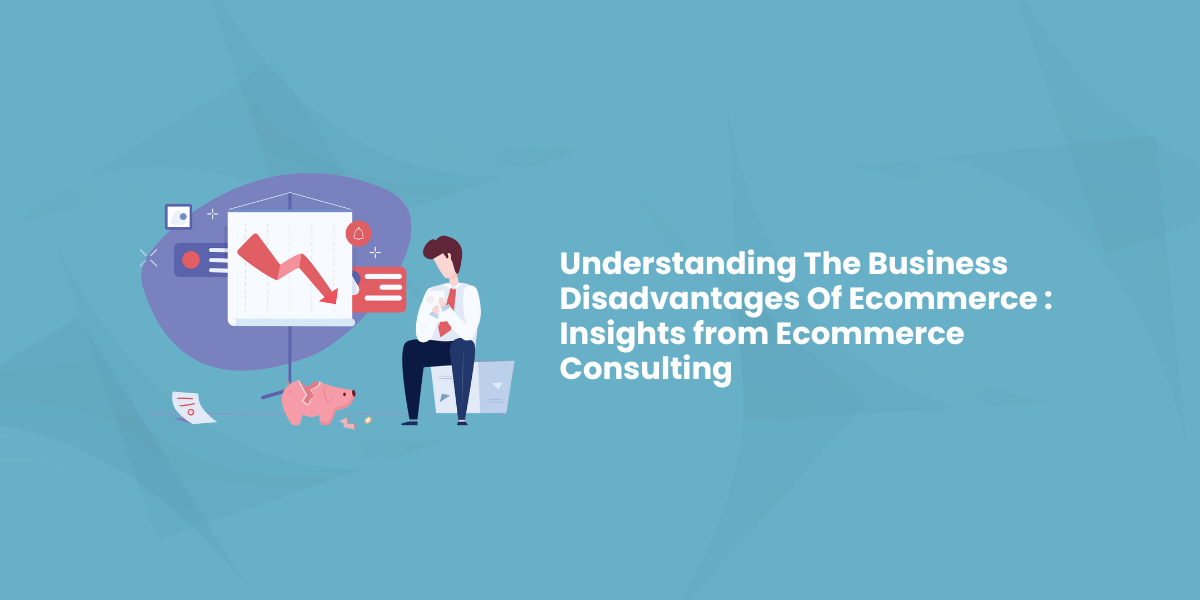Ecommerce has transformed retail by offering a wide range of products and services at our convenience. However, despite its many advantages, businesses face several critical disadvantages in the ecommerce landscape. Understanding these issues is crucial for navigating the digital marketplace effectively. Here’s a deep dive into the business-specific drawbacks of ecommerce:
Security and Privacy Challenges
- Description: Handling sensitive customer information online poses significant risks. Ecommerce businesses must protect data such as names, addresses, and payment details from breaches, identity theft, and fraud.
- Impact on Businesses: A data breach can result in hefty financial losses, legal consequences, and long-term damage to the brand’s reputation.
- Mitigation: Invest in robust cybersecurity measures and stay updated with the latest security practices to safeguard customer data and avoid costly breaches.
Impersonal Customer Experience
- Description: Ecommerce lacks the personal touch of physical stores where customers receive face-to-face service and personalised recommendations.
- Impact on Businesses: Without the ability to interact with customers in person, creating a strong connection and providing tailored service becomes challenging, affecting customer satisfaction and loyalty.
- Mitigation: Enhance online customer engagement through live chat, virtual consultations, and personalised marketing to bridge the gap left by the absence of physical interaction.
Complexities of Shipping and Logistics
- Description: Managing shipping logistics can be complicated and costly. Ecommerce businesses must deal with shipping fees, potential delays, and the need to provide accurate delivery estimates.
- Impact on Businesses: Shipping costs can erode profit margins, and delays can lead to customer dissatisfaction and lost sales.
- Mitigation: Optimise logistics operations, negotiate shipping rates, and offer clear communication regarding delivery times to improve efficiency and customer satisfaction.
Challenges with Product Representation
- Description: Ecommerce businesses cannot allow customers to physically inspect products before purchase, which can lead to discrepancies between expectations and reality.
- Impact on Businesses: Inaccurate product representations can result in higher return rates and increased costs associated with processing returns and exchanges.
- Mitigation: Use high-quality images, detailed descriptions, and customer reviews to provide a more accurate representation of products and minimise return rates.
Intense Market Competition
- Description: The low barrier to entry in ecommerce means that businesses face intense competition from numerous players, which can lead to market saturation.
- Impact on Businesses: Standing out in a crowded marketplace requires significant effort and resources, leading to potential price wars and reduced profit margins.
- Mitigation: Focus on differentiating your brand through unique selling points, targeted marketing strategies, and strong customer relationships to remain competitive.
Environmental Concerns
- Description: Ecommerce can contribute to environmental issues through packaging waste and the carbon footprint of transportation.
- Impact on Businesses: The environmental impact of shipping and returns can affect a business’s sustainability efforts and appeal to environmentally-conscious consumers.
- Mitigation: Adopt sustainable packaging solutions, optimise shipping practices, and promote eco-friendly policies to mitigate the environmental impact of ecommerce operations.
Difficulty in Building Customer Loyalty
- Description: Establishing and maintaining customer loyalty is more challenging online due to the ease of comparison shopping and switching between retailers.
- Impact on Businesses: With numerous options available, customers may prioritise price over loyalty, making it harder for businesses to retain customers.
- Mitigation: Implement loyalty programs, personalised marketing, and exceptional customer service to foster stronger relationships and encourage repeat business.
Dependence on Technology
- Description: Ecommerce relies heavily on technology, which can be prone to issues such as website downtime and payment processing errors.
- Impact on Businesses: Technical problems can disrupt operations, lead to lost sales, and require ongoing investment in technology and infrastructure.
- Mitigation: Ensure a reliable and well-maintained website, invest in technical support, and regularly update systems to minimise disruptions and maintain a smooth shopping experience.
Conclusion
While ecommerce offers numerous benefits, businesses must navigate several critical disadvantages. From security risks and impersonal customer interactions to logistical challenges and environmental concerns, these issues can significantly impact business operations. Understanding these business disadvantages ecommerce is essential for crafting effective strategies. By addressing these challenges, businesses can make more informed decisions, enhance their ecommerce strategies, and ultimately succeed in the digital marketplace.




